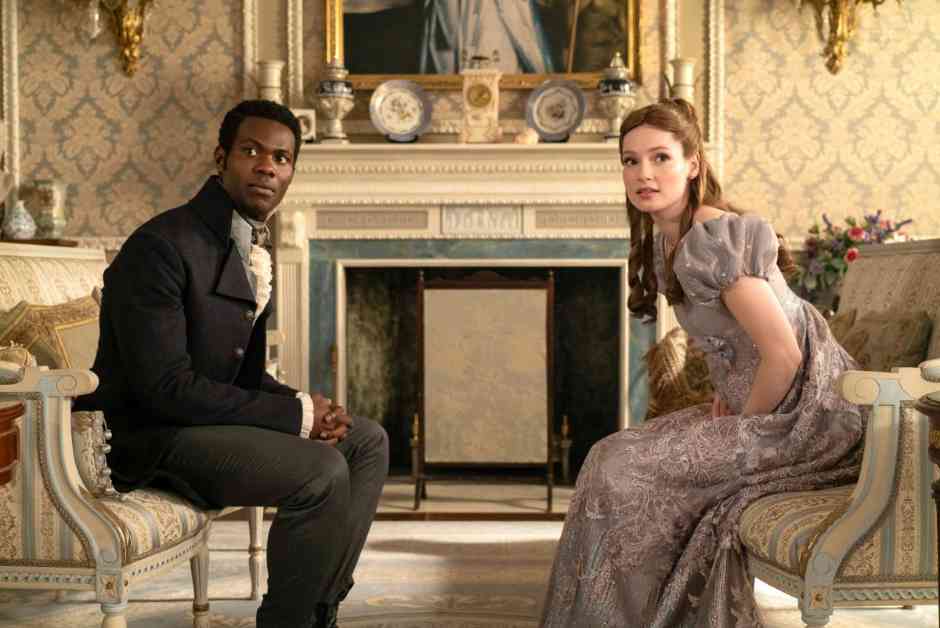In the latest season of Bridgerton, viewers were introduced to Michaela Stirling, a character who brought a new dimension of diversity and inclusivity to the show. While some fans were surprised by this unexpected turn of events, many welcomed the introduction of a queer storyline into the Regency-era series.
For fans of the original romance series by Julia Quinn, the evolution of Francesca Bridgerton’s character and her relationship with Michael Stirling was a departure from the books but a refreshing change nonetheless. By gender-flipping the character, the show opened up the possibility of exploring queer romance in a mainstream, popular culture setting.
The online debate that ensued following Michaela’s introduction highlighted the importance of representation for LGBTQ individuals. For viewers like Samantha Williams and Tonia, seeing queer characters onscreen was not only affirming but also empowering. In a world where anti-LGBT legislation and rhetoric are on the rise, Bridgerton’s commitment to showcasing diverse forms of love is a step in the right direction.
The addition of queer storylines for characters like Benedict and Francesca comes at a time when LGBTQ representation on television is declining. According to GLAAD’s latest report, there has been a 22% decrease in LGBTQ characters onscreen, making shows like Bridgerton all the more significant for LGBTQ viewers.
Showrunner Jess Brownell’s decision to include queer storylines was a deliberate choice to showcase authentic experiences and narratives. By subverting stereotypes and highlighting the complexity of queer identities, Bridgerton is paving the way for more inclusive storytelling in period pieces.
For viewers like Sydney Little, Francesca’s journey of self-discovery and acceptance resonated deeply. From her struggles with fitting in to her eventual realization of her true desires, Francesca’s arc was a poignant exploration of identity and love.
Ultimately, Bridgerton’s embrace of diversity and inclusion is a testament to the power of representation in popular media. By telling authentic, character-driven stories, the show is challenging stereotypes and opening up new possibilities for queer storytelling onscreen. In a world where queer joy is often overshadowed by discrimination and prejudice, Bridgerton offers a glimmer of hope and happiness for LGBTQ individuals everywhere.


